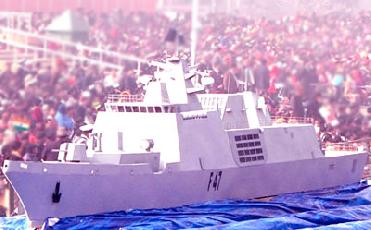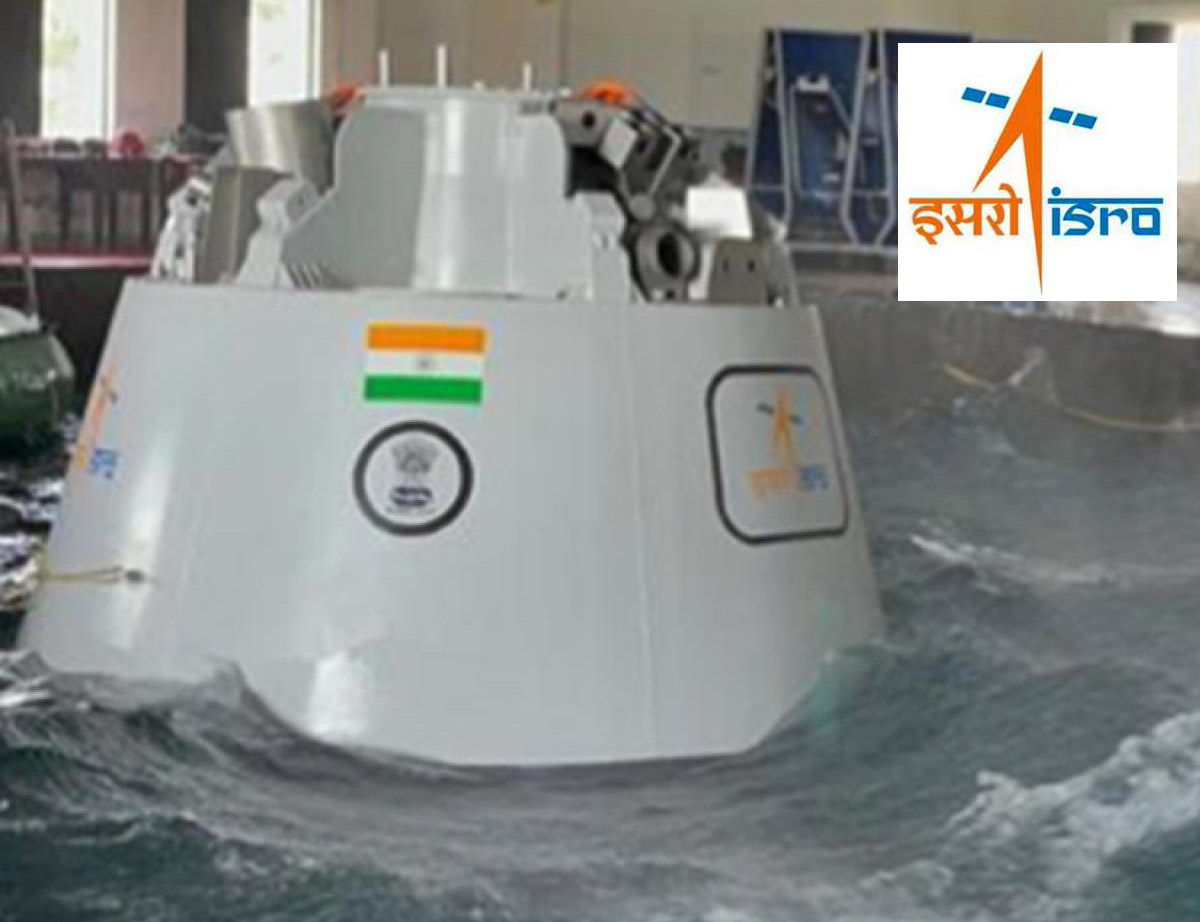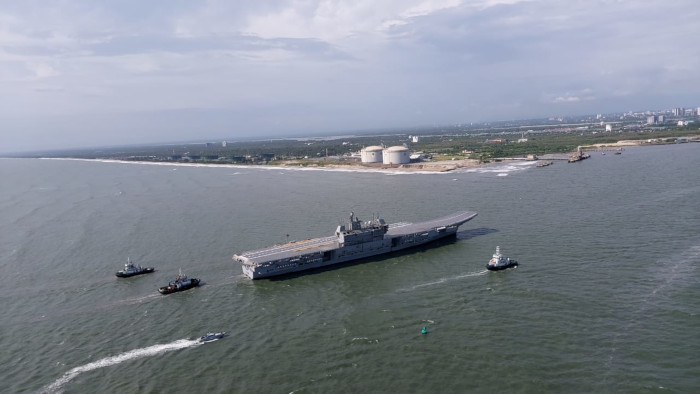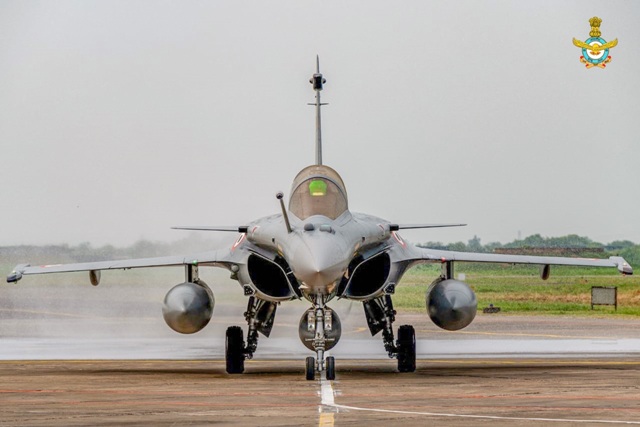
INS Shivalik. A PIB Photo.
INS Shivalik, the stealthiest Indian warship will be commissioned by the Indian Navy on April 29.
The indigenously built multi-role frigate is the first of the 3-ship Project-17 frigates constructed at the Mumbai-based Mazagon Dock Limited (MDL) and conceptualised by the Directorate General of Naval Design.
The Shivalik class friagate is a modified version of the Russian Project 1135.6 Talwar (Krivak III) class frigates.
The construction of the frigate began in the year 2000 and the keel was laid on 11 July, 2001. It was launched on 18 April 2003.
The 143-metre-long warship, with 6,000-tonne displacement, has a versatile control system and external control system with signature management and radar cross section reduction features. The total length of the ship is 143 meters while its breadth is 17 meters and has a maximum speed of 30 knots.
The naval warship has the latest stealth features to outsmart the enemy with low radar cross section, be it of the hull, infra-red or sound signatures.
The lower infra-red signature is due to Infra-Red Supression System (IRSS) design tools and training provided by Canada's Davis Engineering. The Canadian IRSS is the most effective IR signature reduction device.
The sensors and weapons of the ship are controlled through a Combat Management System designed and developed by an Indian Navy establishment and manufactured by Bharat Electronics.
The warship incorporates several new design features giving it enhanced operational capabilities in terms of survivability, stealth, sea keeping, ship handling and weapons.
Shivalik class warships can deal with multiple threat environment, fitted with weapon suite comprising both area and point defence systems; sensors for air, surface and subsurface surveillance and tracking; medium range and close-in gunnery, electronic support and counter measures; and decoys for soft kill measures.
The prime weapons which will be mounted on the ship includes the Russian Klub surface-to-surface missiles and the Russian radar-guided Shtil missile system and Israeli Barak-1 air-defence missile system, apart from Oto Melara and AK-630 guns. It is also armed with indigenous sonars and anti-submarine warfare systems and two on-board helicopters.
Shivalik is also equipped with state-of-the-art defence against nuclear, biological and chemical attacks. The Atmospheric Control System filters and controls the temperature and humidity of the air coming into the ship at all times, including the air being used by the engines. It removes any radioactive, chemical or biological impurities, thereby protecting the crew and the systems even during a nuclear, biological or chemical attack.
The ship is powered by Combined Diesel or Gas Turbine (CODOG) propulsion system consisting of one each of General Electric LM 2500 IEC (Integrated Engine Controls) Marine Gas Turbines and SEMT Pielstick diesel engine on each shaft driving a large diameter controllable pitch propeller.
It will be manned by a 250-member crew including 35 officers.
INS Shivalik is thus supremely well-equipped for the new network-centric warfare of today's battlefield. The frontline naval warship will add teeth to the Indian Navy's growing warfare capabilities.
Two more of the Shivalik class, named INS Sayahdri and INS Satpura, would be ready for commissioning by November this year and middle of next year.
- Courtesy:
PTI
Global Security
 Previous Article
Previous Article Next Article
Next Article













The Indian Air Force, in its flight trials evaluation report submitted before the Defence Ministry l..
view articleAn insight into the Medium Multi-Role Combat Aircraft competition...
view articleSky enthusiasts can now spot the International Space Station (ISS) commanded by Indian-American astr..
view article